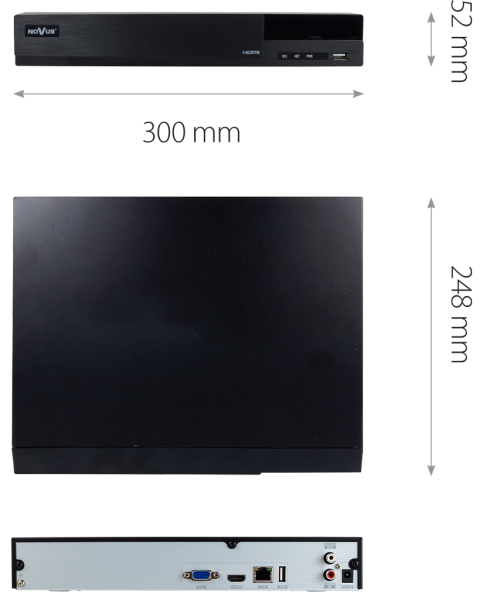- Cameras
We recommend
- Lenses
- Recorders
- Signal Transmission
- Video intercoms
- Other
- NMS VSS
- NMS AC
- ANPR
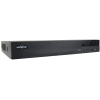
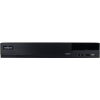
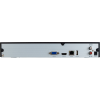
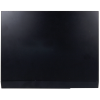








The recorder is dedicated to work with NOVUS 6000 series IP cameras. Detailed data can be found in the compatibility table available in the DOWNLOADABLE FILES tab.
The mobile application allows remote monitoring of the system based on the 6000 series devices via a smartphone with Android or iOS. Live view, playback, the basic configuration of the devices, PTZ control, PUSH alarms receiving and others are available from the phone. Thanks to P2P feature, network access is very convenient – no public address nor port forwarding are necessary, all you have to do is scan the QR code available on the camera or NVR, enter your login data and that's all.
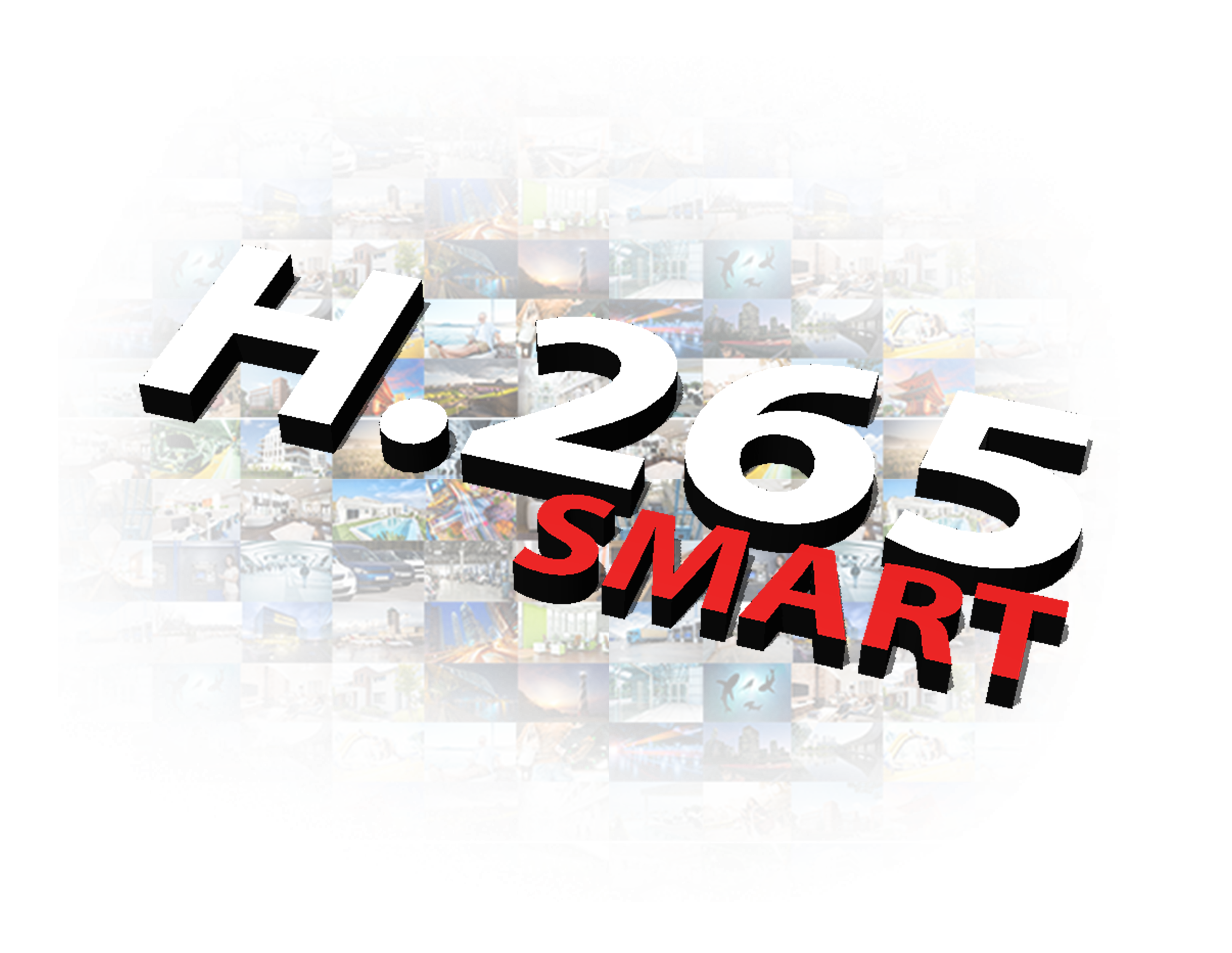
Improved video stream encoding type based on creating virtual base frames, and dynamic realocate bits in stream structure. The algorithm allows 30% bandwidth saving compared to H.265 +, up to 50% compared to H.265.
The license plate recognition system based on the 6000 series recorder and NVIP-2H-6732M/LPR camera allows you to open the gate/barrier according to vehicle database. Each recognition is saved as a snapshot of the licence plate image (which is automatically linked to a fragment of the recording), which facilitates the subsequent verification of entries. The configuration of the camera, database and the search for license plates is done from the recorder and web browser.
The recorders in combination with the cameras of the same series, apart from the configuration of basic parameters such as contrast or brightness, allow for a much more advanced interference with the camera settings. Depending on the functionality of the camera, from the recorder level it is possible, among others:
- changing the network settings of the camera
- stream parameters setting
- setting the zoom and focus in a camera with a motor zoom lens
- enabling and configuring the image analysis function
The dynamic change of stream parameters allows for a significant saving of space for recording on the recorder's disks. This function frees us from the need to use recording after motion detection to ensure a long recording time, through operation in two modes: normal and alarm. When recording in the normal mode, we can set lower quality and fewer frames per second, while in the alarm full quality of the image. Thanks to this, we keep the continuity of the recording at the required recording length with full image quality for interesting parts recording
Smartplayback, or so-called post factum analysis allows the monitor's operator to search for recordings in coincidence with crossing lines or violating the area which we define at the time of playback recording. Thanks to this solution, the time needed to find a specific part of the recording is much more effective and less time-consuming.
Novus Management System VSS software is an advanced platform for managing video monitoring system. Novus Management System VSS can combine different standards of CCTV: Analog, AHD, IP, and at the same time is a software with a high degree of flexibility, finding its application in both small and large and distributed installations
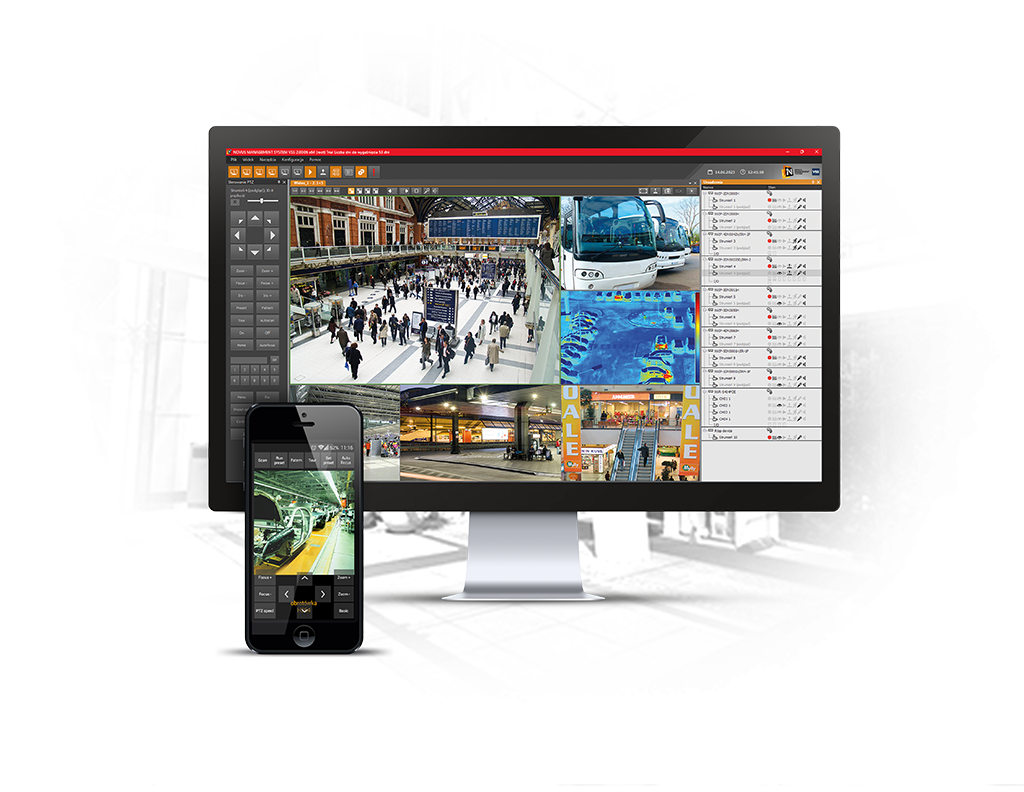
VCA (Video Content Analysis) features are a collection of techniques and algorithms that analyze and interpret video to detect threats, anomalies, or unwanted activities. VCA algorithms make it possible to detect and identify objects, analyze the movement of objects, including their tracking, but also allow, for example, face or license plate recognition. In thermal imaging cameras, VCA functions allow for early detection of fires.
The VCA in the cameras can operate automatically, without the need for human intervention, which enables a quick response to emergency situations.
The ONVIF standard allows for basic compatibility between devices from different manufacturers and brands. The camera + recorder set supporting the ONVIF standard guarantees that the camera will be found, added, recorded and will transmit information about motion detection.
The video encoding standard, which is the successor to the H.264 standard, which allows to save up to 35% of the bandwidth.
Improved coding standard allowing even more efficient use of the transmission bandwidth. The mechanism is based on the use of frame elements virtualization, which allows for the partial prediction of the recorded image, thus the overall packet traffic in the network is reduced.

The function allows to trigger a local alarm, send an e-mail, control the relay, or send a push notification to the mobile application after detecting in the observed zone the detection of the object left for a specified time.
Application example:
- leaving luggage at train stations, metro stations
- places with a parking ban
The function allows to trigger a local alarm, send an e-mail, activate the relay, or send a push notification to the mobile application after detecting the disappearance of the object in the designated detection zone.
Application example:
- protection of museum exhibits
The function allows to trigger a local alarm, send an e-mail, control the relay after detecting the face from the observed scene. The function will be used in places where due to high traffic it is not possible to use ordinary motion detection, and we want to register only fragments in which a human appears on the observed scene.
Application example:
- shops
- passage control (gates, tripods)
The function allows to trigger a local alarm, send an e-mail, control the relay, or send a push notification to the mobile application after violating the limits of the defined detection zone (up to 4 detection zones).
Application example:
- perimeter protection of the object
- protection of strategically important objects
The function allows to trigger a local alarm, send an e-mail, activate the relay, or send a push notification to the mobile application after:
- covering the camera
- changing the scene of the camera (physical interference in the assembly)
- changing the focus settings (with cameras manually
adjustable focal length)
The function allows to trigger a local alarm, send an e-mail, activate the relay, or send a push notification to the mobile application after the object has crossed the previously defined line (maximum 4 lines per one camera).
Application example:
- perimeter protection of the object
| Video | |
|---|---|
| IP Cameras | up to 16 channels at 3840 x 2160 resolution (video + audio) |
| Maximum Supported Camera Resolution | 3840 x 2160 |
| Compression | H.264, H.265, H.265+, H.265 Smart |
| Monitor Output | main (split screen, full screen, sequence): 1 x HDMI (4K UltraHD), 1 x VGA (up to 2 monitors simultaneously) |
| Dualstreaming Support | yes |
| Fisheye Support | yes, 6000 IP series cameras using any web browser, ipGO 6, N Control 6000 |
| Audio | |
| Audio Input/Output | 1 x line-in (RCA) / 1 x HDMI, 1 x line-out (RCA) |
| Recording | |
| Recording Speed | 480 fps (16 x 30 fps for 3840 x 2160 and lower) |
| Stream Size | 160 Mb/s in total from all cameras |
| Recording Mode | continuous, triggered by: manual, alarm input, motion detection, intelligent image analysis functions |
| Prealarm/Postalarm | up to 5 s/up to 600 s |
| Display | |
| Display Speed | 480 fps (16 x 30 fps) |
| Playback | |
| Playback Speed | 480 fps (16 x 30 fps) |
| Recorded Data Search | by date/time, events, image analysis events, POS, motion in a defined area, tags, license plate number |
| Backup | |
| Backup Methods | USB port (HDD or Flash memory), network |
| Backup File Format | MP4, AVI, RPAS (player included) |
| Storage | |
| Internal Storage | available mount: 1 x HDD 3.5” 24 TB SATA |
| Total Internal Capacity | 24 TB |
| Alarm | |
| Camera Alarm Input/Output | supports IP camera’s alarm input/output |
| Motion Detection | supports camera’s motion detection |
| System Reaction to Alarm Events | buzzer, alarm output activation, recording activation, PTZ, e-mail with atatchment, Full Screen, PUSH message, voice prompt, snapshot |
| Intelligent image analysis | |
| Supported Functions | Exception, Scene Change, Video Blurred, Video Color Cast, Tripwire, Zone entrance, Abandoned Object, Object Disappearance, Face Detection, Perimeter Intrusion Detection by pedestrian or vehicle, Line Cross Detection by pedestrian or vehicle, License Plate Recognition (LPR), Video metadata |
| Database Capacity | 1000 license plates |
| Network | |
| Network Interface | 1 x Ethernet - RJ-45 interface, 10/100/1000 Mbit/s |
| Network Protocols Support | HTTP, TCP/IP, IPv4/v6, HTTPS, FTP, DHCP, DNS, DDNS, NTP, RTSP, UPnP, SNMP, PPPoE, SMTP, P2P, POS, HTML5 |
| ONVIF Protocol Support | G/M/S/T profiles |
| PC/MAC Software | NOVUS MANAGEMENT SYSTEM VSS, NOVUS MANAGEMENT SYSTEM AC, NMS, Internet Explorer, Firefox, Chrome, Opera, N Control 6000, Edge/Safari, N Control 6000 |
| Mobile applications | ipGO 6 (iPhone, Android) |
| Number of Simultaneous Connections | up to 64 clients, up to 20 main streams or 64 substreams or 16 playback streams in total |
| Bandwidth | 160 Mb/s in total to all client workstations |
| PTZ | |
| PTZ Functions | pan/tilt/zoom, preset commands |
| Auxiliary Interfaces | |
| USB Ports | 2 x USB 2.0 |
| Operating system | |
| Operating System | Linux |
| OSD | languages: Polish, English, others |
| Control | PC mouse and IR remote controller (in-set included), network |
| System Diagnostic | automatic control of: HDDs, network, camera connection loss |
| Security | password protection, IP filtering, MAC filtering, ARP guard |
| Installation parameters | |
| Dimensions (mm) | 300 (W) x 52 (H) x 248 (D) |
| Weight | 1.2 kg (without HDD) |
| Power Supply | 12 VDC (100 ~ 240 VAC/12 VDC PSU in-set included) |
| Power Consumption | 20 W (with 1 HDD) |
| Operating Temperature | -10°C ~ 50°C |
